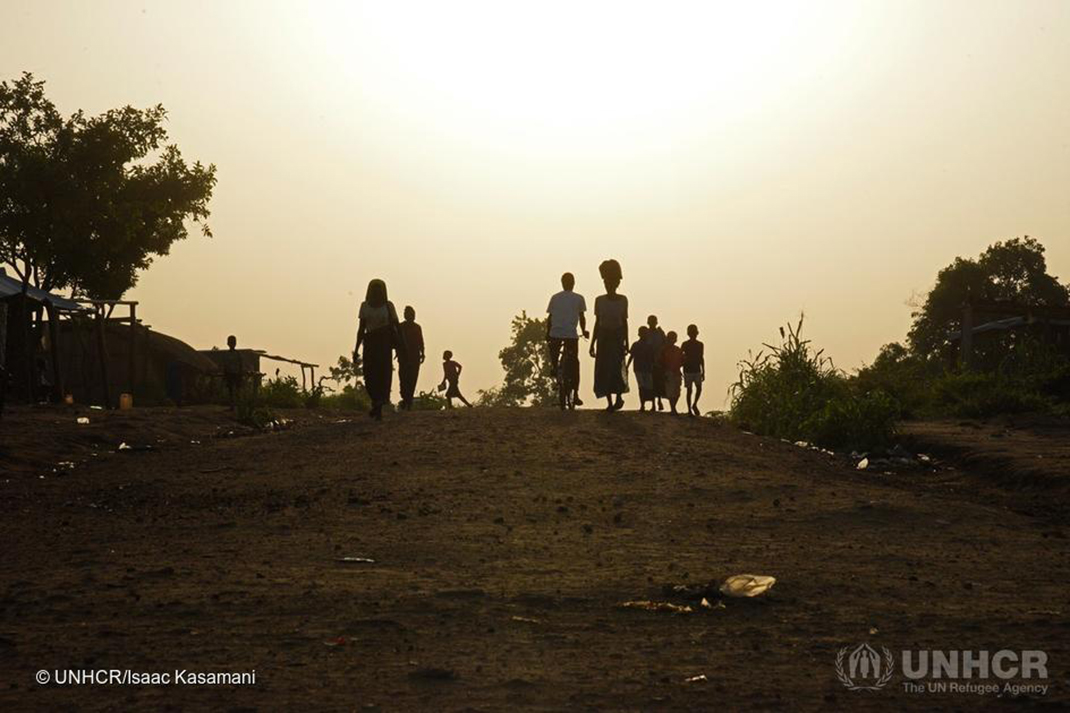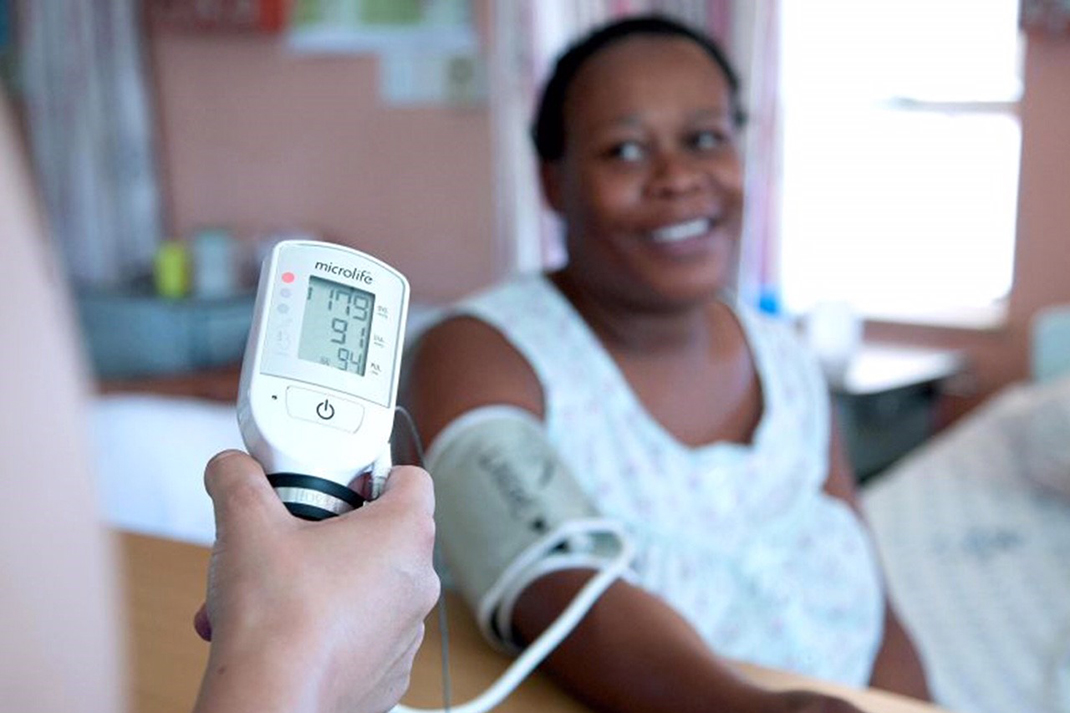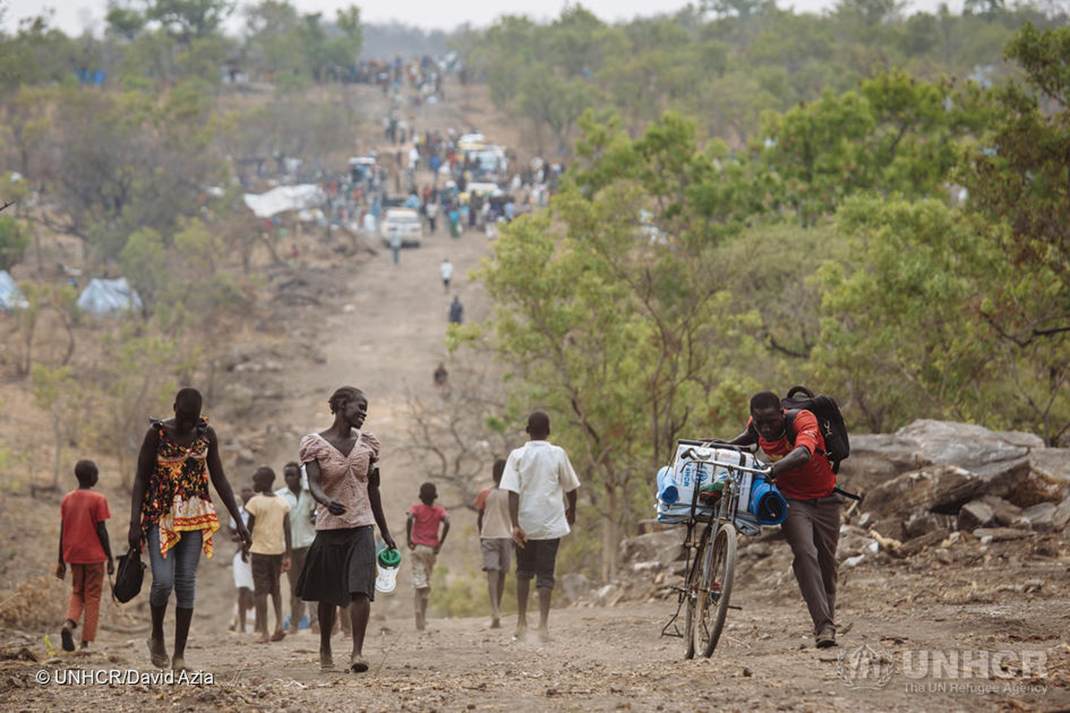Technology and mission: Coming to the aid of pregnant refugees
Women in refugee camps in Uganda are in danger of dying during pregnancy or childbirth. That threat is about to change for thousands of them, thanks to an electronic device and your support for BMS World Mission
They’ve fled a civil war, trekking for days to cross the border from South Sudan into Uganda, seeking sanctuary from crippling food shortages and men with guns and machetes. They’ve fled to save themselves, their loved ones, and the ones yet to be born.
The South Sudanese women who make it to the Bidi Bidi refugee camp in northern Uganda find a settlement of tents and mud-brick huts that sprawls for miles. The number of people living there, roughly 280,000, is higher than the population of many a British city, and most of them are women and children.

Women and children have walked for miles to escape conflict in South Sudan.
Left behind because they were killed, abducted, forced to fight, or too weak to travel, are brothers, sisters, grandparents, children… and future fathers. An estimated one in five women of childbearing age in humanitarian emergencies like this are likely to be pregnant. Keep that in mind when you read the following:
– An estimated 830 women die every day from pregnancy and birth-related causes around the world.
– Of these maternal deaths, 99 per cent happen in developing countries.
– More than 50 per cent of maternal deaths are caused by conditions that could be detected if vital signs were assessed.
A £20 handheld device that measures blood pressure and heart rate can change these statistics. It is called the Microlife Cradle VSA (Vital Signs Alert), and from March, hundreds will be used in the Bidi Bidi camp, and the Nakivale refugee settlement in south west Uganda.

The device has already been used to help pregnant women in Haiti. Picture by Hope Health Action.
HOW DOES THE DEVICE WORK?
The device needs minimal training to operate and uses a traffic light warning system that shows the risk of shock or high blood pressure in a patient.
– A green light shows the patient’s blood pressure and heart rate are normal, and they are likely to be well.
– A yellow light shows the blood pressure is high, and the patient could have pre-eclampsia, a condition that occurs in pregnancy, or soon after delivery. If untreated, it can cause a pregnant woman to suffer a seizure, stroke or even die.
– A red light shows that blood pressure is very high and the patient could have severe pre-eclampsia, or may have severe bleeding or infection.
To watch a step by step guide on how the device works, click here.
Thanks to your gifts, at least 7,000 pregnant women will receive a medical check that could save both their lives, and the life of their unborn children. The device will alert volunteer health workers to a problem that can then be referred to a doctor or nurse.
BMS funding of £18,000 will help partner organisation
Hope Health Action (working with King’s College London and the United Nations refugee agency) distribute more than 700 of these devices into the two camps from March and train people to use them.

By giving to BMS, you’re making a life-saving difference to women in the Bidi Bidi and Nakivale refugee settlements.
But it could lead to so many others being helped, as it’s hoped a successful programme will prompt the Ugandan health ministry to distribute the device to other refugee camps.
We give thanks for your gifts. Amazing things are happening because of you.
This story was originally published on the BMS World Mission website and is used with permission.
BMS World Mission, 21/01/2018